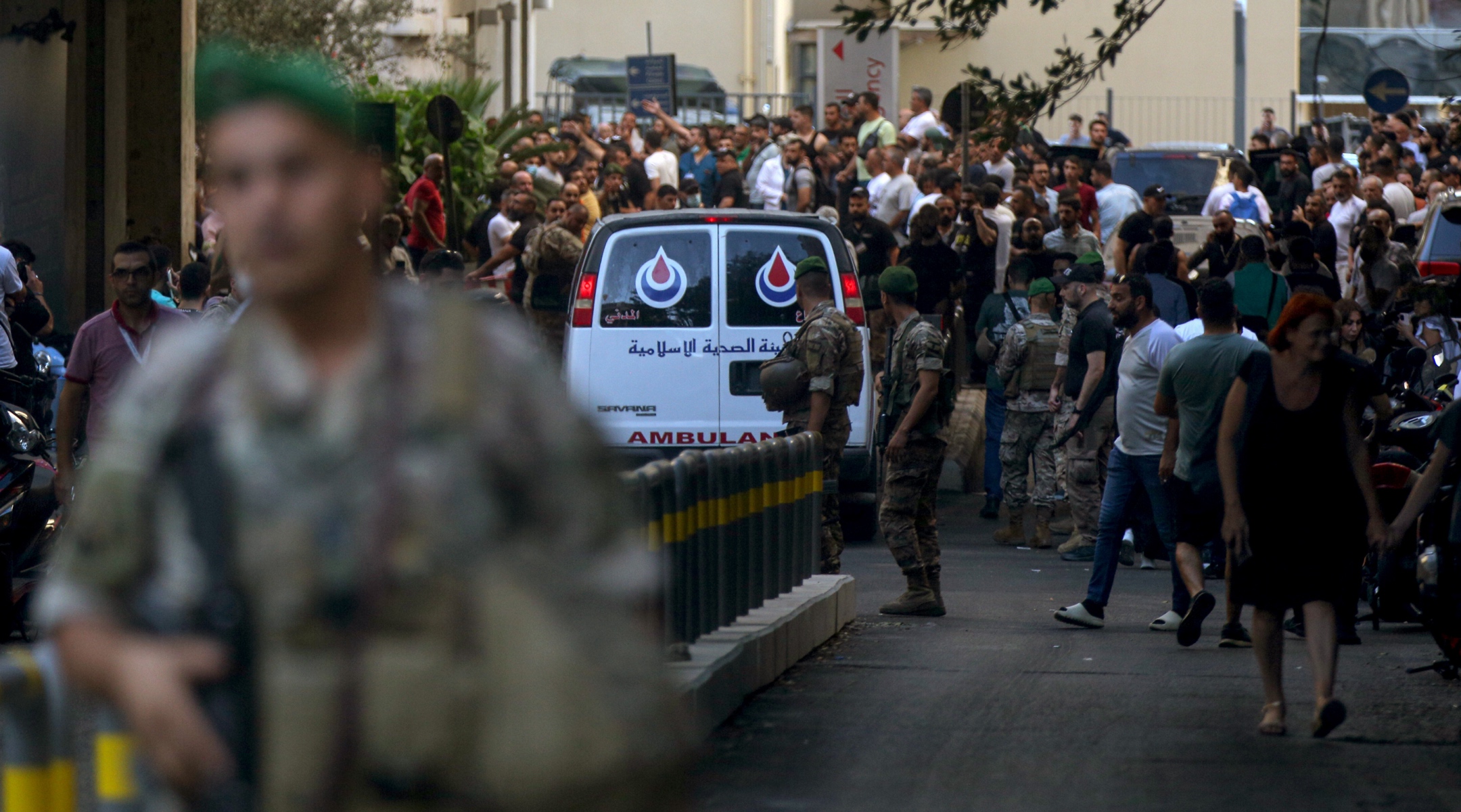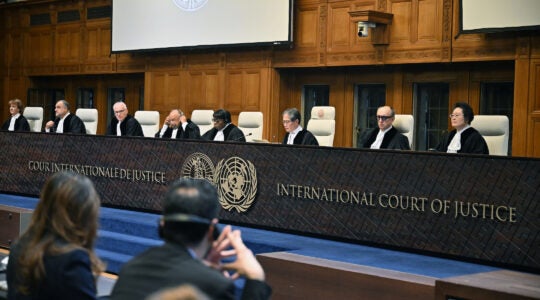Wireless devices carried by Hezbollah operatives and their associates exploded en masse Tuesday, killing at least eight and wounding more than 2,700 people in Lebanon and Syria, a mass targeted attack on the terror group as tensions on Israel’s Lebanese border continue to escalate.
No one claimed responsibility for the series of explosions on Tuesday, and Israel has not commented publicly on them. The United States has also said it was not involved in the attack. Hezbollah blamed Israel for the attacks, Reuters reported, and said there would be “fair punishment.”
Lebanese officials said the fatalities included two Hezbollah operatives and a child. One of the dead was the son of a Lebanese lawmaker. The Iranian ambassador to Beirut suffered minor injuries. Iran is Hezbollah’s chief ally and sponsor. Emergency rooms in and around Beirut were overwhelmed with casualties, reports said.
The blasts are the latest indication that nearly a year of clashes between Hezbollah and Israel could spiral into a full-fledged war. On Monday, Israel’s security cabinet added “Returning the residents of the north securely to their homes” to its list of official wartime goals, and Prime Minister Benjamin Netanyahu told a U.S. official that Israel will “do what is necessary to safeguard its security” in the north.
Earlier this week, Israeli Gen. Ori Gordin, who heads the country’s Northern Command, proposed that Israel invade southern Lebanon in order to create a buffer zone between Israel and Hezbollah, effectively reviving an occupation that Israel maintainedfor nearly two decades until it withdrew from Lebanon in 2000.
Hezbollah began firing missiles at Israel shortly after Hamas’ Oct. 7 invasion, and clashes have intensified since July, when a Hezbollah attack killed 12 schoolchildren in a Golan Heights village. Israel assassinated Hezbollah’s military chief, Fuad Shukr, in retaliation, and Hezbollah vowed revenge. Last month, Israel struck hundreds of Hezbollah missile launch sites in what it said was a preemptive attack.
Matthew Levitt, a senior fellow who studies counterterrorism at the Washington Institute for Middle East Policy, said Tuesday’s attack damaged Hezbollah’s deterrence as the two sides are on the brink of war.
“It comes against the backdrop of Israel’s pretty impressive, timely intelligence that Hezbollah was about to shoot rockets at intelligence agencies near Tel Aviv and preemptively striking them, which itself comes on the heels of the targeted killing of Fuad Shukr,” he said. “So if you’re in Hezbollah right now, you’re probably pretty concerned about the level of penetration.”
The Wall Street Journal quoted anonymous sources as saying the pagers were from a recent shipment to the terrorist group. Should the explosions prove to be part of a planned mass attack, it could be unprecedented in scope, if not in method. In 1996, Israel remotely exploded a single cellphone to assassinate Yahya Ayyash, a leading Hamas official.
JTA has documented Jewish history in real-time for over a century. Keep our journalism strong by joining us in supporting independent, award-winning reporting.






